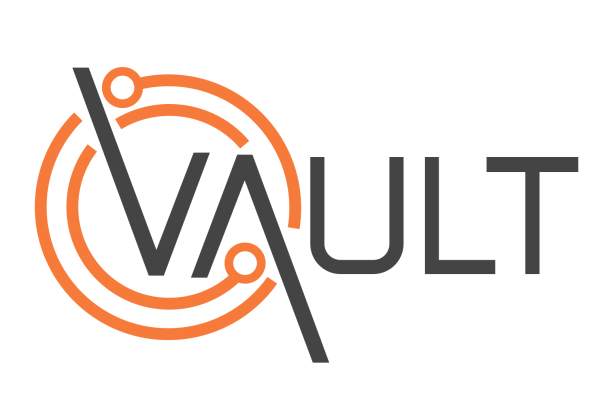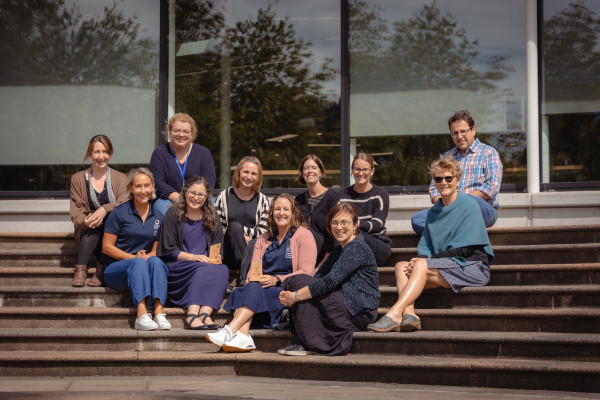- Tūhono home Hoki ki Tūhono
-
- Staff Directory
- Chief Executive Office Auckland International Office Corporate Services Finance Campus Services Functions and Catering Information Systems and Support Marketing, Communications and Engagement Learner Journey Academic Registry International Learner Services Te Punaka Ōwheo
- Learner Experience Academic Excellence Central Campus College of Community Development and Personal Wellbeing College of Engineering, Construction and Living Sciences College of Health College of Work Based Learning Open Education Resource/OERu Research and Postgraduate Studies Te Maru Pumanawa | College of Creative Practice and Enterprise
- Māori Development and Kaitohutohu Office People, Culture & Safety People and Culture Childcare Centre Te Ama Ako | Learning and Teaching Development Wellbeing and Safety Auckland Staff Directory Executive Office Academic Corporate Services Marketing and Business Development Human Resources Campus Quality and Programme Development
-
 Our people make a better world
Our people make a better world
We build the capabilities of individuals, organisations and communities and help them to realise their potential.
Staff Directory
-
- Tools
- Academic Integrity Declaration Form AIC Applications Dashboard Approved Programmes Approved Programme Fees Centralised Assessement Repository Chemwatch CMS - Tūhono & StudentHub updates Course Evaluation and Surveys CRM Applications CRM customer service hub Delegations policy/process Disability and Neurodiversity Dynamics 365 (CRM) EBS Ontrack EBS Report Email Security Personal Portal Employment Matters / Solarworkplace / Performance Reviews eTaxi eTV
- Financial Variance Reporting Hidden Disabilities Sunflower programme FCM travel intranet InPlace International entry requirements Knowledgebase articles Learner Support Dashboards Linkedin Learning Log a job with Marketing Login as an applicant Microsoft 365 Moderation App Moodle OP Docs OP Docs - Publishing OP Image Libraries Performance Excellence Portal Product Evaluation Panel
- Policy Library Privacy Programme and Course Design and Development Qualtrics XM RDS Remote Access Support Portal Research Database Robertson Library Staff FAQs about Graduation Status of Programmes Student Hub (Kāpehu demonstration view) Study Abroad info for learners Tūhauora I Wellbeing resources Uniprint Vault Webexpenses Auckland Tools
-
 Vault
Had an accident or near miss?
Log it here
Vault
Had an accident or near miss?
Log it here
-
- Communities
- Community AI Steering Committee Ally Network EBS Community of Interest EdTech Champions Health & Wellbeing Research Internal Evaluation Neurodiversity Professional Team Professoriate Proud@OP Student Support Website Advisory Group Web Champions Working under the Rainbow Project Learner Capability Trade Training Centre
- Committee Academic Committee Animals@OP Diversity and Equity Doctor of Professional Practice Committee Kaunihera Whakahaere - Leadership Council Internal Evaluation Learning & Teaching Leadership Team Library Committee Mental Health and Wellbeing Advisory Group Otago Polytechnic Board of Directors Pastoral Care Code Committee Programme Approvals Committee Research and Postgraduate Committee Research Ethics Committee Staff Subcommittee
- Think Tanks Mātauraka Our learners achieve educational success Pūtea Our financial success Tākata Our people, our team, our community Tiriti Our active commitment as a Treaty partner Tūroa Our commitment to be a sustainable and responsive organisation
-
 Create a community
Create a community
Do you have a community, committee or project that you'd like represented here?
Communities
-
- About OP
- Keep up to date All news All events All notices All blogs Share your info Create a news article Create an event Create a notice Create a blog
- Community and Partnerships Alumni and friends Education Foundation Operational information Academic calendar 2025 Academic calendar 2026 Current vacancies Dunedin campus map Our policies Topical FAQs
- Who we are About OP Commemorative sites Māori Strategic Framework Merchandise OP Our history Our strategic priorities Pasifika Strategic Framework (2025-2030) Vision and Values Working for us OP job opportunities Wellbeing Calendar Working at OP
-
New Zealand: 0800 762 786
contact us
International: +64 3 477 3014
Confidence and mastery in mothering occupations
Author: Sorcha Odgers
Supervisors: Ema Tokolahi Yvonne Thomas
Confidence and mastery in mothering occupations
Sorcha Odgers
16 June 2023
Odgers, S. (2023). Confidence and mastery in mothering occupations. (A thesis submitted for the degree of Master of Occupational Therapy, Otago Polytechnic | Te Pūkenga - New Zealand Institute of Skills and Technology, New Zealand). https://doi.org/10.34074/thes.6056
Abstract
RESEARCH QUESTION: Which mothering occupations are mothers of infants participating in when they notice feelings of confidence and mastery in their mothering abilities?
ABSTRACT AIMS: This study aimed to explore everyday mothering occupations that evoke feelings of confidence and mastery, with mothers positioned as experts of their experience. The purpose of the study was to investigate the relationships between occupation and positive wellbeing in mothers with infants. Long-term health and wellbeing begin with infancy, childhood, and childbearing years of the mother. Mothers’ feelings of success at their mothering role contributes to overall maternal wellbeing. Occupational therapy client centred practice requires therapists to understand the nature, performance and function of occupations in relation to the person and environment in which it is performed. Using an occupational therapy perspective, this study explored mothering occupations that engendered a sense of confidence and mastery in motherhood.
METHOD: A Delphi survey was used. This group facilitation technique elicits expert opinions by reaching consensus. The list of occupations was not intended to be comprehensive and all-encompassing for mothering. It was informed by mothering literature, compiled by the researcher, then added to by participants. Fifteen mothers with infants 12 to 18 months old were recruited, 8 added items to the mothering occupations list, and a total of 7 participants ranked the items in both Delphi surveys. Between survey rounds, participants were shown the overall collective group responses. They were asked to reflect on the knowledge of the group, and re-rank the list. RESULTS A high degree of consensus was reached between two survey ranking rounds to the extent that the top nine of 47 items did not change their ranked positions. Because consensus was increased between Delphi rounds, a list of the top mothering occupations for evoking feelings of confidence and mastery in mothering, as ranked by a panel of mothers, was developed. A notable finding from this study was that mothers ranked co-occupations and shared experiences with their infants more highly overall than occupations alone or involving others. Mothering occupations were found to be innumerable and subjective, with the mothers of the study identifying with a wide range of occupations. The most highly ranked mothering occupation for maternal confidence and mastery was ‘watching’ their baby. It was found that mothers value connecting with nature, and also that some mothering occupations may stay relevant across the life course.
CONCLUSIONS: The study was limited by a small sample size, however consensus increased between survey rounds for the top 15 mothering occupations that mothers felt evoked feelings of confidence and mastery in their mothering. The findings from this study could inform primary health professionals to facilitate conversations around wellbeing in motherhood. The knowledge of how occupation influences maternal confidence and mastery has implications for health and societal policy around how mothers can be supported to engage in co-occupations with their infants. Occupational therapists are uniquely positioned to promote such conversations and research because of the underlying client-centred values involved and the understanding of the positive impact occupation can have on health and role transition.
Keywords: New Zealand, mothers, self-efficacy, well being, mothering occupations
Licence
A copy of the thesis is publicly available under a Creative Commons Attribution Non-Commercial No Derivatives licence CC BY-NC-ND 4.0 International
